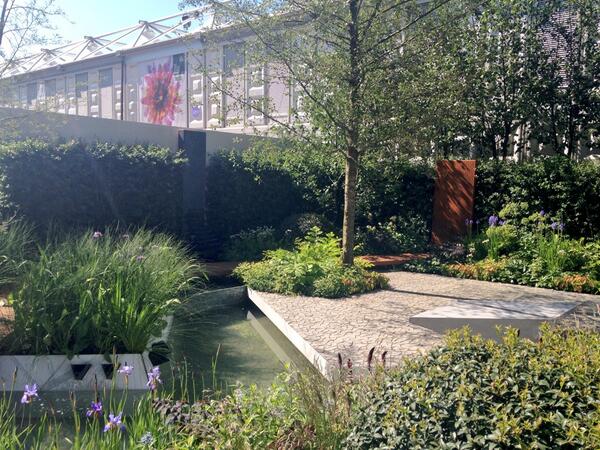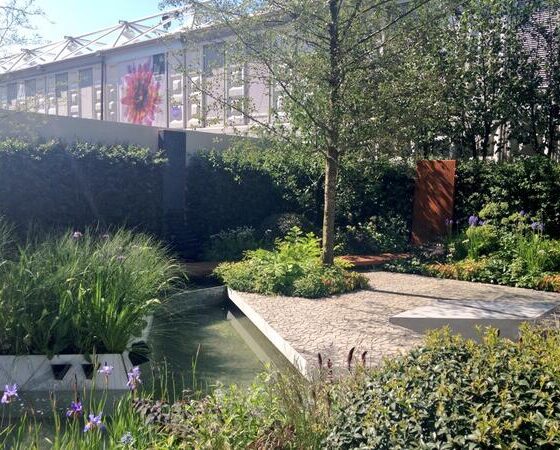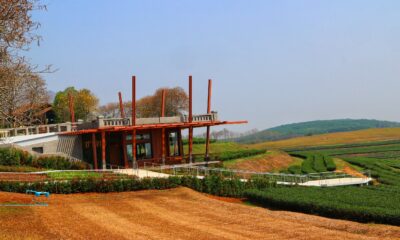

Environment
Sustainability in full bloom at Chelsea Flower Show
The world-renowned Chelsea Flower Show opened for visitors on Tuesday, displaying a number of gardens and exhibits promoting sustainability.
The Royal Horticultural Society’s annual central London event attracts around 160,000 visitors every year, and many of them are educated on the best practices of environmental stewardship.
One of this year’s gold medal-winning gardens is an environmentally conscious waterscape from debutant Hugo Bugg.
His design is a “sophisticated, sustainable and symbolic” design that attempts to replicate naturally occuring water management features. It is aimed to demonstrate how urban gardeners can control and use storm water all year round.
“Chelsea is the perfect platform to highlight water conservation and present solutions”, Bugg said.
“Visitors will understand the concept of storm water management when they see the garden, because they will see how the water is being slowed and stored through the garden and they’ll see water levels dropping as they go through as that reflects water infiltrating into the ground.”
The National Union of Students (NUS) will also be present at this years’ event, showcasing its Student Eats programme, which has helped students from 23 UK universities to grow low-carbon, organic food on campus.
“Our campus gardens are about so much more than just growing vegetables”, said Dom Anderson, NUS vice president.
“They’re making new links between students and their community. They’re providing a huge range of employability skills for emerging graduates.
“They’re embedding sustainability into formal education and of course, they’re working towards a fairer, more sustainable food system. This is core work for NUS, and we can’t wait to tell people about it on such a prestigious stage.”
The RHS is the UK’s leading gardening charity, and works on a number of research projects related to sustainability.
Its researchers at the University of Reading are investigating how plants can help to reduce urban temperatures, how plants can help insulate buildings and which plants are most appropriate for green roofs.
The society also advises gardeners on the likely impacts of climate change, which, they warn, may have a critical effect on our fauna and flora and bring new pests and diseases to British gardens.
One recent RHS survey of more than 1,000 gardeners found that only 6.2% believed climate change was not happening, while those who thought it was definitely (52.8%), or probably (34.4%) happening said they were already taking action to adapt.
Photo: The_RHS via Twitter
Further reading:
Glyndebourne: why the UK’s leading opera festival backs sustainability
BBC’s Alys Fowler urges gardeners to think of bees this Easter
Butterfly population recovered in 2013 after disastrous summer
Warm summer in 2013 led to bumper year for UK wildlife
Chelsea Flower Show to combat climate change
































